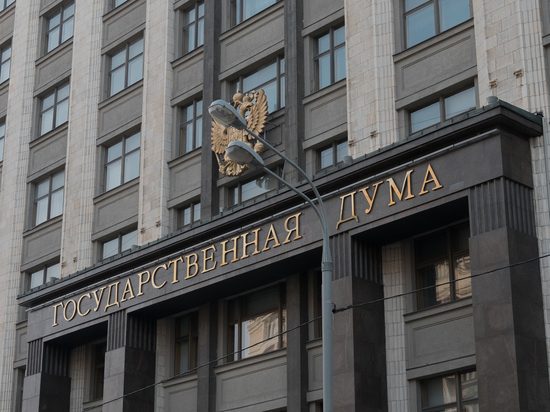In the Duma, they proposed to reduce the working week for the wives of the mobilized
[ad_1]

State Duma deputies came up with the idea to reduce the working week for the wives of the mobilized, who have at least one child, from 40 to 35 hours. Keeping wages the same. The bill has already been drafted. “MK” found out from experts how likely the adoption of the law is, whether it has “pitfalls” and what consequences await the economy if it is adopted.
The first deputy head of the LDPR faction Sergei Leonov, commenting on the initiative, noted that children whose fathers are involved in a special military operation need attention and support. There is no doubt about this, of course. In addition to reducing the working hours for women, the deputies also propose to give working parents and wives of the mobilized the right to an additional vacation of 14 days, although without pay.
The corresponding bill has already been prepared, it is planned to be submitted to the lower house next week. If the document is accepted, then changes will be made to articles 128 and 320 of the Labor Code of the Russian Federation.
Georgy Ostapkovich, a well-known economist and director of the Center for Market Research at the Higher School of Economics, laid out this initiative for MK:
– I support with both hands any benefits that can be provided to the wives, families of the mobilized. The initiative is absolutely humane. It is obvious that such families need help.
I also believe that there are no problems to legislatively introduce this initiative for the period of absence of men. This can be done easily. True, here the question arises, how realistic is it to present this to private business? Are they required to comply with this requirement? The budgetary organizations will decide this “on a chain”, they will not have any difficulties.
However, all such initiatives, according to Ostapkovich, should be considered after carefully analyzing and weighing all the consequences for the economy.
“It seems to me that it is better to use such support measures as material assistance, the provision of some social services, including benefits for mobilized children, admission to kindergartens, universities, etc., which is already being done,” the expert continues. – Because for the economy, the implementation of this initiative can still have a negative cumulative effect.
Ostapkovich explained it this way: 300 thousand people left our labor activity. (True, he notes, 300 thousand people is only 0.5% of the total number of employed people (the total number of employed people is 75 million), but this is already 1% of the male population). Plus, tens of thousands of young people left Russia to avoid mobilization. All together, this means that labor productivity in the sectors of the economy will fall.
– If, against this background, to reduce the working week for women, then this will further reduce labor productivity. The economy will begin to suffer. And then, I do not think that for the wives mobilized, the reduction of the working week is the most necessary help, you can find a lot of other support measures that are more urgent for them. In general, I am sure that before coming up with such initiatives, it is necessary to conduct a sociological study, opinion polls among women – do they want such benefits themselves? Women will tell you what they need.
– And for those women who have an hourly salary, such a measure is probably not suitable at all?
– We have a few hourly workers, 2-3% of all employees. And in those 0.5% who fall under the category of mobilized wives, there will be a very meager amount of them. And hourly workers will always agree with their employers.
But here it is not possible to avoid particular problems. For example, she is a teacher, and if she shortens her working day, will she not go to teach her lesson? Or take a doctor, the same situation – will she reduce the hours of admission? All of this hits people at the same time.
Vitaly Vyshkvartsev, a candidate of legal sciences, an expert in labor law, commented on this idea to MK: “The initiative is quite timely, and to some extent it repeats the benefits and preferences for families with three or more children, in terms of providing additional leave. The state should support motherhood, fatherhood and childhood with all possible measures, and they come down not only to material payments, benefits, but can also be expressed in providing free time for mothers so that they pay maximum attention to raising children, because now children are the most vulnerable link in the light of geopolitical threats. And today, first of all, it is the parents who should devote more time to raising children, and not teachers, not relatives, etc.”
[ad_2]
Source link






